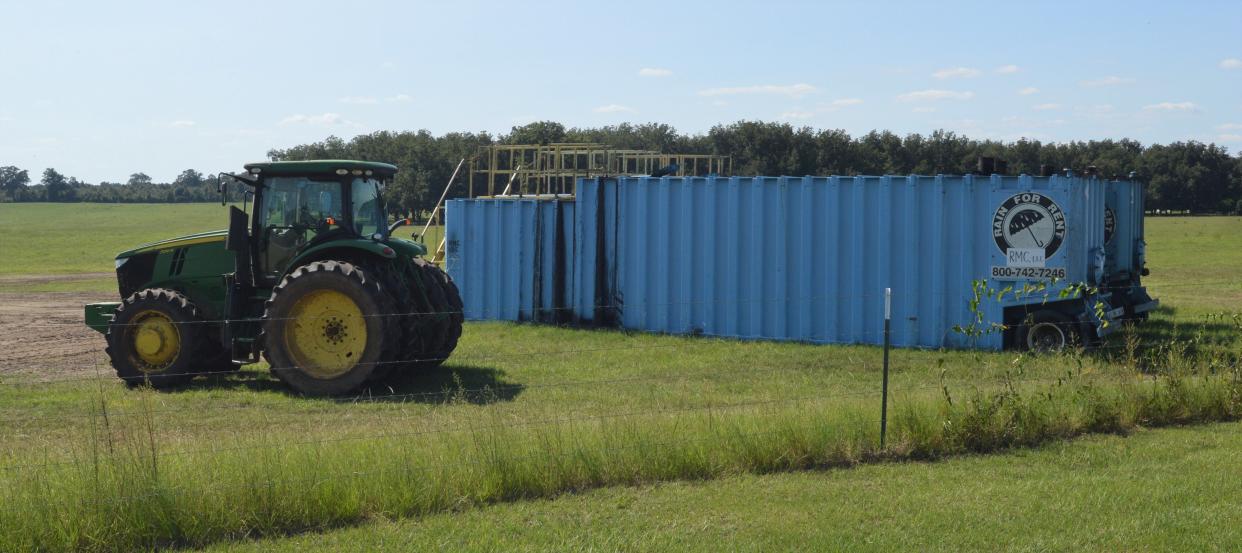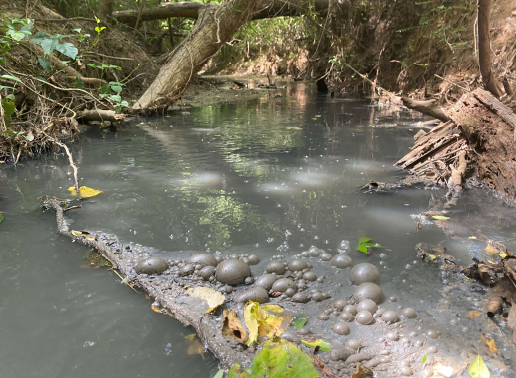Smelly rules: Georgia Department of Agriculture approves soil amendment regulation changes

In response to the recent outburst of complaints about a controversial soil additive, the Georgia Department of Agriculture has passed a rule change aiming to quell concerns of rural Georgians fed up with the flies, stench and nuisance of an agricultural practice moving into their communities in the last half year.
The new rules will go into effect Jan. 1.
The flurry of outcries about soil amendment — an additive meant to improve texture and water retention of dirt — is a new wave in a much longer trend. County commissioners, Georgia Environmental Protection Division employees and GDA have received calls and emails from citizens concerned about the smell, potential for water contamination and continuous, days-on-end dispersal of the product for years.
Sludge rules:Second round of public comments open for controversial soil amendment regulations
A plague of flies:Citizens seek help with smell and flies from neighbors’ fertilizer applications
The updated rules address a few main concerns citizens have voiced, such as requiring more information about the "components" of the soil additives, locations of where it was used, stricter standards and testing, and a nutrient management plan for sites applying soil amendments. The rule change also addresses application methods and potential monitoring requirements to address neighbors' concerns that soil amendment is being "dumped" and spread on the surface of soil without injection, making the material smell worse and potentially creating runoff polluting local soils and waterways.
Additionally, the rule changes charge the agency with improving its requirements for people applying to use the soil additives. Lastly, the proposed rules clarify how haulers calculate tonnage reports, letting the agency know how much soil amendment is being applied.
Fish kill:Nearly 1,700 fish die after farm soil additive leaches into Little River: EPD
More on the fish kill:After fish kill, Georgia organizers renew efforts to increase soil additive regulation
According to Erin White, director of Creative Projects for GDA, the agency held its required public meeting to consider public comments and the adoption of the new rules on Monday, but to no audience.
"Unfortunately, the department staff were the only ones in attendance," White said. Per the notice posted on GDA's website, the meeting was held at the agency's office in Atlanta, several hours' drive from the counties yielding complaints such as Jefferson, Oglethorpe and Warren counties, among others. No link to a digital livestream was included in the public notice. Although no public commenters attended in person, several sent in comments ahead of the meeting.
The updated rules were finalized and submitted to the Georgia Secretary of State office on Wednesday. From there, the updates will be officially changed in the Georgia Rules and Regulations.

Do the rules go far enough?
While the changes are a starting point for addressing the ongoing debate surrounding soil amendments, not everyone is sold that the updated rules will fix the nuisance claims from community members.
"The rules are much better than where we started," said Savannah Riverkeeper Tonya Bonitatibus. "But it does have some very big loopholes and problems that really don't address what we've been asking for."
Bonitatibus' organization focuses on protecting the Savannah River, and many of the rural Georgia counties seeing soil amendments spread throughout towns are in the river's watershed.
GDA's new rules require soil amendment companies to keep better record keeping of reports and plans, for items like truck deliveries. However, Bonitatibus said the companies do not have to turn those documents into GDA — they just have to produce the records within a specific time frame when asked by the agency. Not only does this mean the agency still isn't keeping record of important information, but that information also is not accessible through public records for citizens or organizations like hers attempting to monitor the issue in their communities.
"There's nothing about the rule changes that increase the public or even the local officials' ability to understand and know what's happening in their backyards," Bonitatibus said. She and several county commissioners working through the Association of County Commissioners of Georgia have sought ways that local county governments can enforce soil amendment rules in their own jurisdictions.
Another big missed opportunity is that the new rule changes don't require testing for several possible pollutants: Although testing is currently done for heavy metals, Bonitatibus said that no testing is required or done for detergents or solvents. Her organization has proposed that Georgia model Minnesota law, where any industrial operation that requires an Occupational Safety and Health Administration sheet disclosing the type of contaminant they're using to workers must test their waste for those hazardous contaminants.
"We still have a long way to go, and unfortunately these rules didn't get us there," Bonitatibus said. "So the next step is the Legislature."
Marisa Mecke is an environmental journalist. She can be reached at mmecke@gannett.com or by phone at 912-328-4411.
This article originally appeared on Augusta Chronicle: Georgia Department of Agriculture approves soil amendment rule changes

